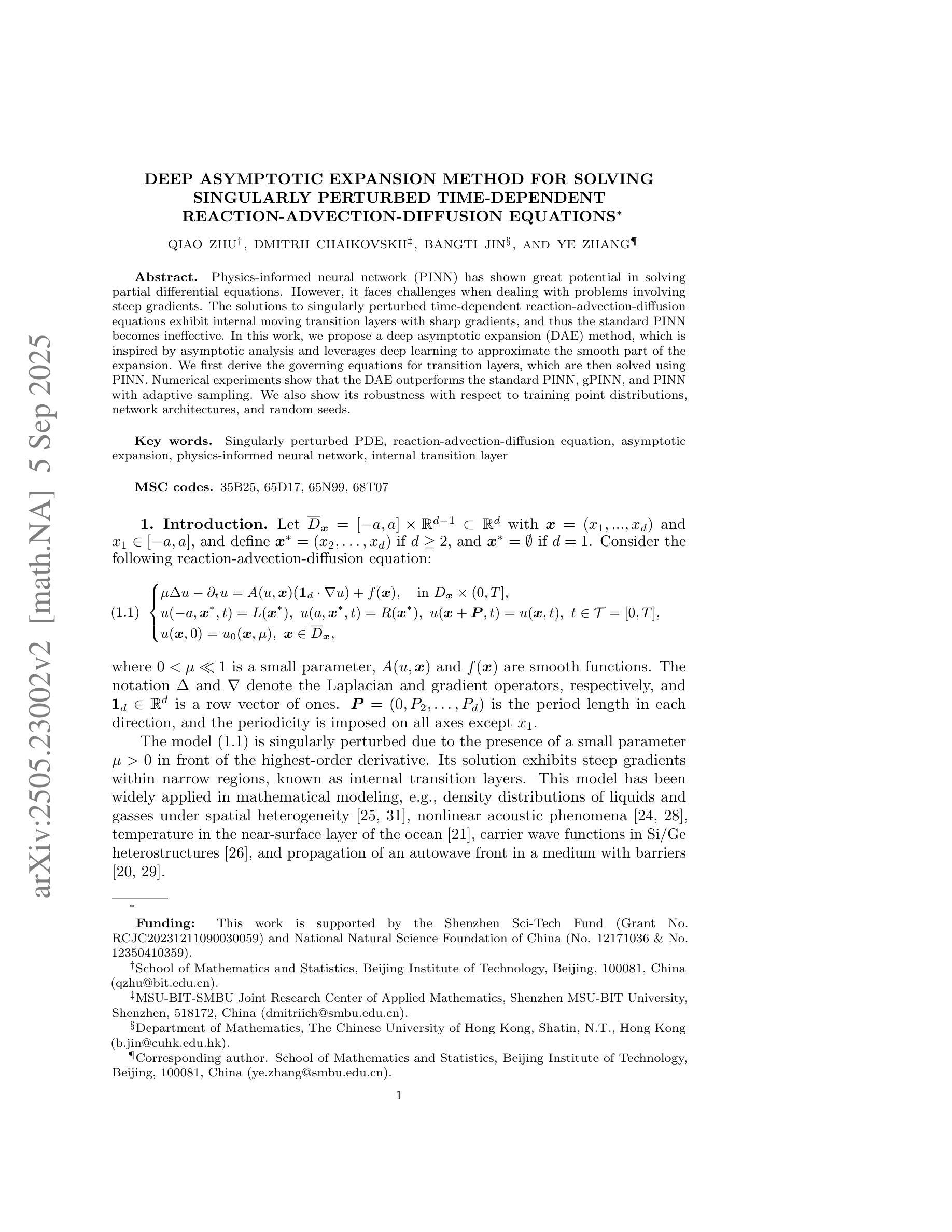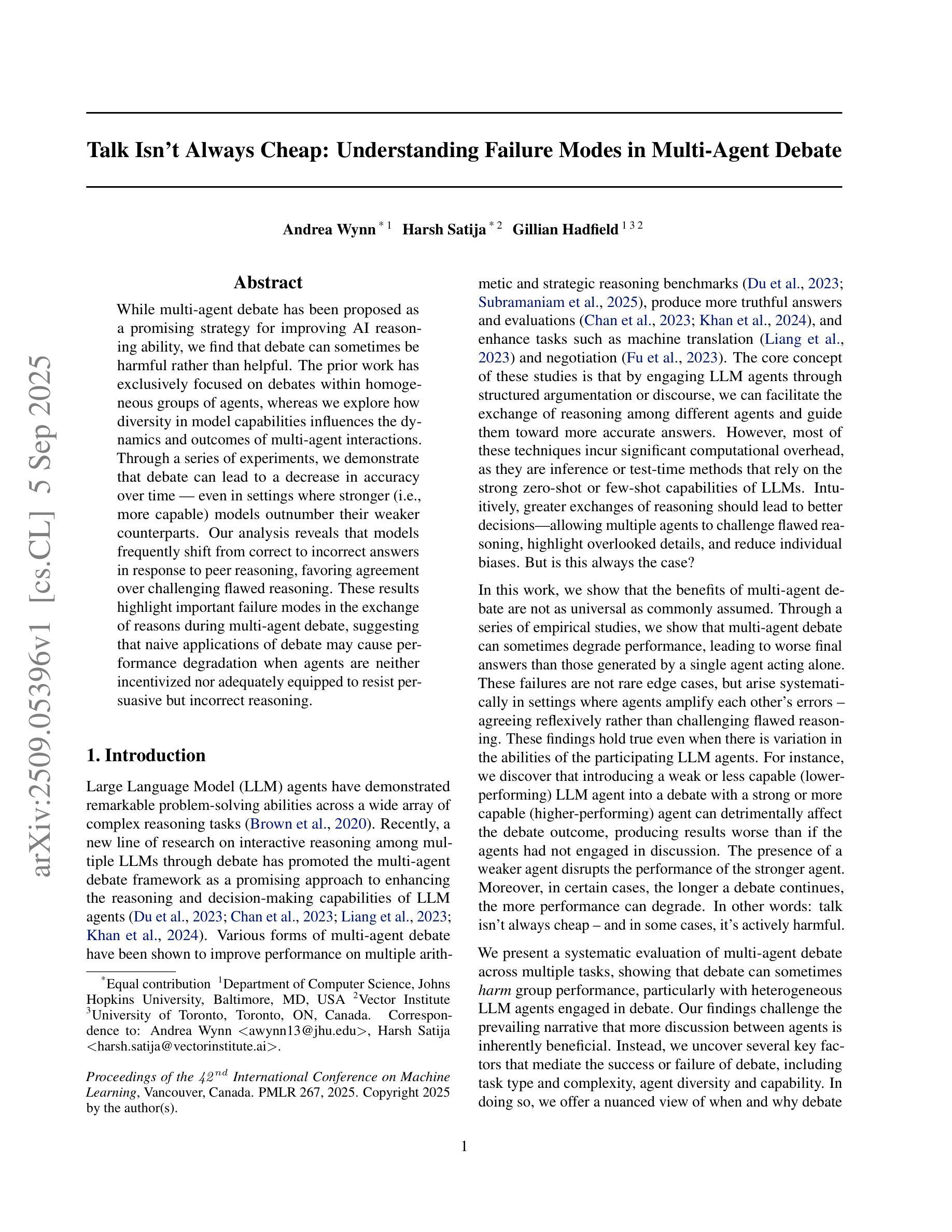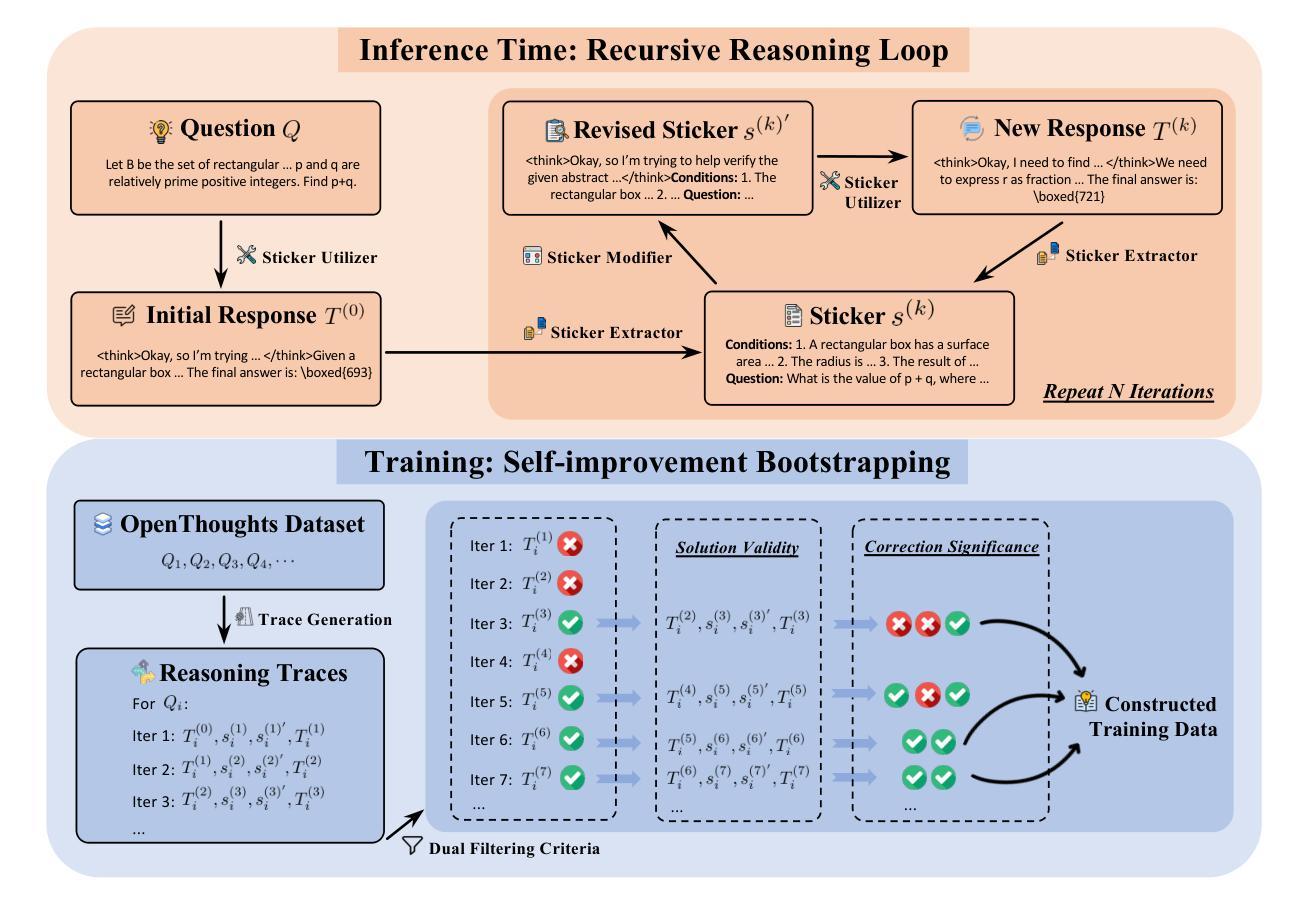⚠️ 以下所有内容总结都来自于 大语言模型的能力,如有错误,仅供参考,谨慎使用
🔴 请注意:千万不要用于严肃的学术场景,只能用于论文阅读前的初筛!
💗 如果您觉得我们的项目对您有帮助 ChatPaperFree ,还请您给我们一些鼓励!⭐️ HuggingFace免费体验
2025-09-09 更新
Deep asymptotic expansion method for solving singularly perturbed time-dependent reaction-advection-diffusion equations
Authors:Qiao Zhu, Dmitrii Chaikovskii, Bangti Jin, Ye Zhang
Physics-informed neural network (PINN) has shown great potential in solving partial differential equations. However, it faces challenges when dealing with problems involving steep gradients. The solutions to singularly perturbed time-dependent reaction-advection-diffusion equations exhibit internal moving transition layers with sharp gradients, and thus the standard PINN becomes ineffective. In this work, we propose a deep asymptotic expansion (DAE) method, which is inspired by asymptotic analysis and leverages deep learning to approximate the smooth part of the expansion. We first derive the governing equations for transition layers, which are then solved using PINN. Numerical experiments show that the DAE outperforms the standard PINN, gPINN, and PINN with adaptive sampling. We also show its robustness with respect to training point distributions, network architectures, and random seeds.
物理信息神经网络(PINN)在解决偏微分方程方面显示出巨大潜力。然而,在处理涉及陡峭梯度的问题时,它面临着挑战。奇异扰动的时间依赖反应对流扩散方程的解表现出具有陡峭梯度的内部移动过渡层,因此标准PINN变得无效。在这项工作中,我们提出了一种深受渐近分析启发的深度渐近展开(DAE)方法,它利用深度学习来逼近展开的平滑部分。我们首先导出过渡层的控制方程,然后使用PINN进行求解。数值实验表明,DAE在性能上优于标准PINN、gPINN以及带有自适应采样的PINN。我们还证明了其在训练点分布、网络架构和随机种子方面的稳健性。
论文及项目相关链接
Summary
物理信息神经网络(PINN)在解决偏微分方程方面展现出巨大潜力,但在处理存在陡峭梯度的问题时面临挑战。针对奇异扰动时变反应对流扩散方程的解展现出具有陡峭梯度的内部移动过渡层,标准PINN方法失效。本研究提出一种受渐近分析启发的深度渐近扩展(DAE)方法,利用深度学习来逼近扩展的平滑部分。首先为过渡层导出控制方程,然后使用PINN进行求解。数值实验表明,DAE方法优于标准PINN、gPINN以及具有自适应采样的PINN。同时,该方法在训练点分布、网络架构和随机种子方面表现出稳健性。
Key Takeaways
- 物理信息神经网络(PINN)在解决偏微分方程上表现出潜力。
- PINN在处理存在陡峭梯度的问题时面临挑战。
- 深度渐近扩展(DAE)方法受到渐近分析的启发,利用深度学习解决这一问题。
- DAE方法解决了奇异扰动时变反应对流扩散方程的解中的内部移动过渡层问题。
- 数值实验证明DAE方法优于标准PINN及其他变体。
- DAE方法在训练点分布、网络架构和随机种子方面表现出稳健性。
点此查看论文截图


